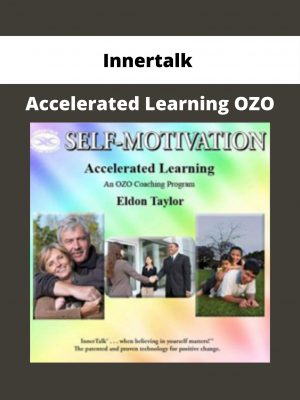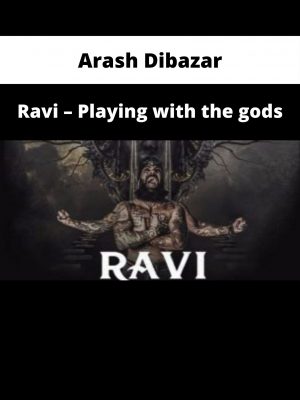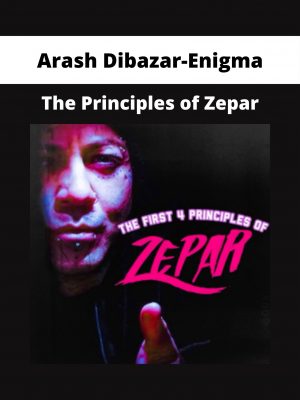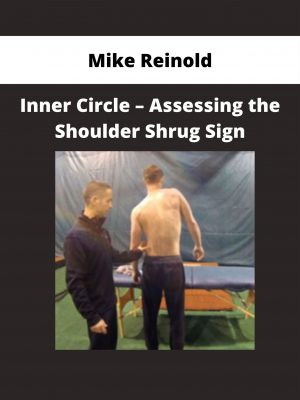André Morys – Heuristic Analysis Framework
$499 Original price was: $499.$59Current price is: $59.
Shopping Instructions:
- DISCOUNT 15% : SHOP15
- Product Delivery: Within 1 – 12 hours after purchase.
Proven frameworks to guide your conversion optimization strategy. Cognitive psychology and persuasion principles to understand user motivations. A structured way to add more value to your CRO program right out of the gate.
André Morys – Heuristic Analysis Framework
Heuristic analysis frameworks for conversion optimization audits:
How you approach conversion optimization determines how successful your efforts will be.
If you’ve got a list of tactics, you’ll likely fail and the program will fizzle out. If you’ve got strategic frameworks and processes, you’ll win. This action-packed live course will teach you how the top experts approach CRO.
This 8-class program will teach you…
- Proven frameworks to guide your conversion optimization strategy.
- Cognitive psychology and persuasion principles to understand user motivations.
- A structured way to add more value to your CRO program right out of the gate.
- New tools and ideas for untapped opportunities for conversion lifts.
This course is right for you if…
- You work in conversion optimization or UX and want to improve revenue and conversions.
- If you work with analytics and want to learn to improve your numbers.
- If you’re a product owner or product manager working on building products that customers love.
Find massive conversion opportunities faster than ever
First thing’s first: let’s define “heuristic analysis” (or “heuristic framework”)…
Heuristic analysis is an expert-based analysis that uses experience-based techniques for problem-solving, learning, and discovery. Done right, it allows you to save time and money as well as helps you find opportunities you may not see simply from analytics or user research.
There are many conversion heuristic frameworks, but they all start with the same goal: to enable a structured framework by which we can judge a digital experience.
No top conversion optimization agency, consultant, or specialist operates without a heuristic framework of some sort, and neither should you. This course will equip you with everything you need to deploy a powerful conversion heuristic model.
Uncover untapped conversion opportunities
Digital analytics can hide crucial insights. Similarly, user testing and session replays don’t show you everything.
By using a heuristic framework, you can not only set a reasonable baseline for website performance expectations, but you can discover and uncover opportunities you may not have with other forms of conversion research.
Look at it this way: it’s another tool in an optimizer’s tool belt. We’ve all heard the quote about Maslow’s Hammer (“if all you have is a hammer, all problems look like nails”). You don’t want to be the optimizer with only one instrument with which you can collect insights.
This course will teach you proven and field-tested heuristic frameworks to draw out better insights, test ideas, and in the end, ROI from your optimization program.
Prioritize your work: Get more out of your program
It’s one thing to look for elements on a website that signal “distraction” or “lack of trust,” and to make a note of them. It’s another level to be able to compile your notes in a meaningful way and prioritize your opportunity areas to maximize efficiency and ROI.
Let’s put it this way: we all have limited traffic (even Amazon). So, prioritization is important to everyone, big or small, well-funded or scrappy. This course will incorporate prioritization and program management, so you’re not simply left with a massive list of “would be nice” items and a to-do list that never ends.
About your instructor:
André Morys
André Morys is the executive director of Web Arts AG – Germany’s leading agency for conversion optimization.
Web Arts employs over 40 people at three locations and manages a lead/retail volume of over 7 billion euros. André Morys is the initiator and founder of the international Conversion Optimization Alliance.
He is also a lecturer at Würzburg University of Applied Sciences and holds numerous keynotes and lectures at national and international conferences on the topics of e-commerce, optimization strategies, and conversion optimization.
In 2009, André Morys was recognized as one of Germany’s best employers by the University of St. Gallen as part of the “Top Job” initiative.
In 2010, Web Arts AG was recognized as one of Germany’s most innovative companies by Lothar Späth as part of the “Top 100” initiative.
André Morys is the organizer and organizer of the ConversionSUMMIT and ConversionCAMP , an annual conference focusing on marketing optimization.
After 8 classes, you’ll be able to:
- Apply proven frameworks to guide your conversion audits.
- Understand implicit user motivations and analyze websites with human psychology in mind.
- Build a structured process to get more value from your CRO program faster.
- Add new tools to your process for finding untapped conversion opportunities
Your course curriculum
Heuristic Analysis Frameworks for Conversion Optimization Audits
Class 1: Introduction to Expert Heuristic Evaluation
In our first session, we’ll go into some pros and cons of running expert heuristic evaluations. We’ll also teach you how to amplify the positive effects of heuristic evaluation with persona development. Finally, we’ll go over some pitfalls of user research and mistakes to avoid.
At the end of class one, you’ll understand how to conduct a proper expert evaluation in under 60 minutes.
Class 2: The Power of Relevance
When a user lands on a website, they will ask the question, “is this the right website for me?”
This class will teach you how to answer that question affirmatively. We’ll go over the shopping window analogy and how it relates to landing pages, how to quantitatively and qualitatively measure relevance on your landing pages, and the difference between implicit and explicit communication. We’ll also cover the power of emotional optimization and how to use confirmation bias to reduce your bounce rates.
Class 3: How to Use Trust and Orientation as a Growth Lever
Forget the 10-second rule: You have 50 milliseconds to nail your first impression.
This class will cover anticipated credibility (and how to use it), how to use cognitive biases if your brand is not very popular, and how to avoid cognitive dead-ends.
Class 4: How to Stimulate Users’ Buying Tendencies
This class will dive into implicit user motivations and how to find the buy button in the mind of your users. It will cover value propositions in depth – the difference between different kind of value props and how to analyze and improve your own. We’ll also cover psychological triggers like motivation, urgency, and scarcity.
Class 5: Analyze How Users Anticipate Easiness and Security
It’s not all about persuasion triggers. Uses also anticipate easiness and evaluate trust and security when navigating the web. This class will teach you how to analyze these behaviors and improve upon your current state of ease and security. In addition, we’ll cover forms and checkouts, and how to build security and ease measures here.
Class 6: The Post-Purchase Effect and How it Affects Website Optimization
Users may make emotional or irrational decisions, but they also seek to justify those decisions through confirmation and rational thought. This class will cover that confirmation effect and will teach you how to analyze and optimize for everything that happens after the conversion. The effect of this will be to increase customer lifetime value and repeat purchases.
Class 7: Systematic Evaluation
Your own cognitive biases are the single biggest danger to the validity of evaluation. In this class, we’ll teach you to mitigate those negative effects, improve the validity and objectivity of your results, and how to report the results to different target groups to spark action.
Class 8: Prioritization – The Key to Success
There are many frameworks for prioritization, each with its own pros and cons. This class will include an overview of the common prioritization frameworks, but will also cover the four questions you should ask no matter which framework you use, and how to incorporate expert evaluations with other user research methods.
Read more: http://archive.is/eRAm9
Here’s What You’ll Get in André Morys – Heuristic Analysis Framework
André Morys – Heuristic Analysis Framework : Sample
Related products
Personal Development
Personal Development
Personal Development
Tony Robbins – New Money Masters Elite + Bonuses [Complete Version]
Personal Development
Personal Development
Personal Development
Personal Development
Mike Reinold – Inner Circle – Assessing the Shoulder Shrug Sign







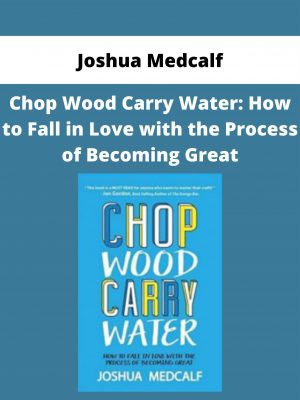

![Tony Robbins – New Money Masters Elite + Bonuses [complete Version]](https://copicourse.com/wp-content/uploads/2021/08/tony-robbins-new-money-masters-elite-bonuses-complete-version-300x400.jpg)
